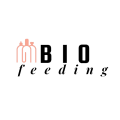The Critical Importance of Feeding Hygiene
Understanding the Relevance of Feeding Hygiene
Feeding hygiene, a concept that emphasizes cleanliness during meal times, is often taken for granted. However, its importance in maintaining your baby’s health safety can’t be overlooked. This post provides key feeding hygiene tips to ensure that your little one’s health is impeccably preserved.
Feeding Hygiene and Baby Health Safety
Microorganisms thrive in environments where food and moisture are abundant, making your baby’s feeding items a potential hotspot for germs. When these germs come into contact with your baby’s food or mouth, they can trigger infections.
By adhering to strict feeding hygiene practices, you significantly reduce the risk of these infections. Improper cleaning of feeding items, careless handling of baby food, and inadequate sterilization can all impact your baby’s health. So, it’s crucial to employ proper feeding hygiene for baby health safety.
Top Feeding Hygiene Tips
Implementing feeding hygiene can be straightforward and practical. Here are some essential tips to ensure your baby’s safety:
- Regularly sanitize feeding items: Ensure you sanitize feeding bottles, teats, and other feeding items after every use. This process kills bacteria, viruses, and other pathogens that may cling to these items. You can learn more about making feeding time fun with these top bottles.
- Clean hands always: Wash your hands thoroughly before handling your baby’s food. According to CDC guidance, keeping clean hands is an essential step to avoid getting sick and spreading germs to others.
- Use safe water and food: Use clean, safe water to prep your baby’s food. Avoid using food past its expiry date, and ensure it’s prepared and stored hygienically.
- Pay attention to storage: Correct storage of feeding items and baby’s food plays a crucial role. Make sure to store them in clean, dry places to avoid any microbial growth.
Translating Feeding Hygiene into Parenting Solutions
Feeding hygiene, despite its essential role, often gets overlooked in the plethora of parenting solutions. However, understanding the science behind baby bottle safety and the importance of cleanliness during feeding times can make a significant difference in ensuring your baby’s health safety.
Having a strict feeding hygiene regimen should be a non-negotiable aspect of parenting. Not only does it keep your baby safe from harmful bacteria and viruses, but it also sets a positive example for them, particularly as they start exploring solid foods.
Feeding Hygiene: A Critical Step Towards Health Safety
By now, you should understand why feeding hygiene is so critical for your baby’s health. Remember, small changes can make a big difference, and implementing the tips outlined above will put you on the right path. Take it one step at a time, and before you know it, these practices will become an integral part of your parenting routine.
The Global Significance of Feeding Hygiene
The importance of feeding hygiene extends far beyond your home; it has global health implications. For instance, the World Health Organization (WHO) has released significant information emphasizing infant and young child feeding hygiene. Such measures play a crucial role in reducing infant mortality rates and promoting healthy development and growth in children worldwide.
The Science Behind Feeding Hygiene
Scientifically speaking, your baby’s immune system is still developing during the first year or so of life; hence they are more vulnerable to infections. Maintaining consistent feeding hygiene, therefore, is pivotal in preventing the spread of potential pathogens.
Several scientific studies, including those from the National Center for Biotechnology Information (NCBI), have pointed out the potential risks associated with improper feeding practices. For instance, the failure to adequately clean feeding utensils can lead to microbial contamination, which, in turn, can cause diarrheal diseases, a leading cause of infant morbidity and mortality worldwide (source).
Antibiotic Resistance and Feeding Hygiene
Another aspect that underscores the importance of feeding hygiene is the growing concern regarding antibiotic resistance. According to WHO, the misuse of antibiotics in our food system contributes to the rise of superbugs resistant to antimicrobials. Therefore, maintaining proper feeding hygiene for babies and young children could help mitigate the spread and development of antibiotic resistance by reducing foodborne illnesses needing antibiotic treatment. Read more about antibiotic-use in foods at this link.
Feeding Hygiene and Breastfeeding
Feeding hygiene isn’t exclusively applied to bottle feeding. It’s equally essential for breastfeeding mothers. This emphasizes the significance of washing hands and breasts before feeding, preserving expressed milk safely, and keeping breast pumps sterilized and clean.
Immunization and Feeding Hygiene
Infants are also protected against certain diseases through vaccinations, but these may not be sufficient to ward off all potential illnesses. In such cases, the body’s first line of defense is good hygiene, primarily feeding hygiene, underscoring its indispensability in infant well-being.
Parents’ Awareness and Responsibility
Your awareness about feeding hygiene practices and keenness to adhere to them determine your responsibility as parents. Make sure to follow WHO and other reliable sources for updates on feeding hygiene practices and recommendations. A small oversight or negligence can risk your dear one’s health, proving that constant vigilance in following hygiene standards is not optional but a dictate of responsible parenting.
As your baby grows older and starts to eat solid foods, you need to uphold the same hygiene standards when preparing and serving their meals. This will not only protect them from potential health risks but also imbibe good hygiene habits into them that they’ll carry for the rest of their lives.

